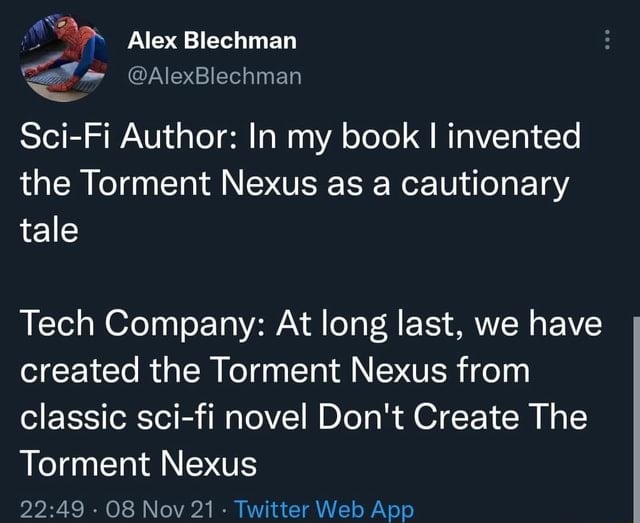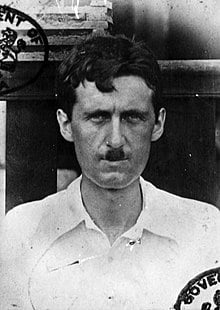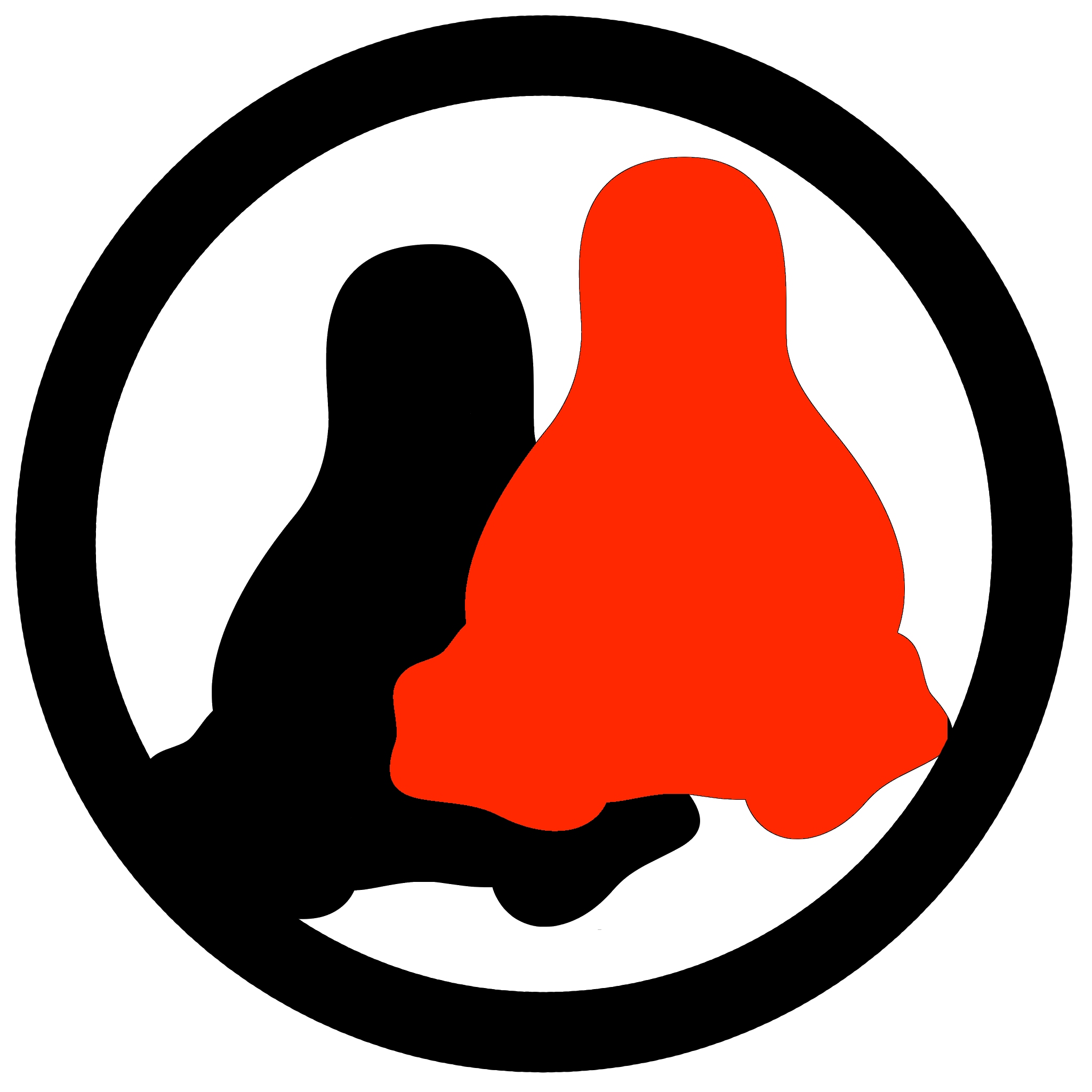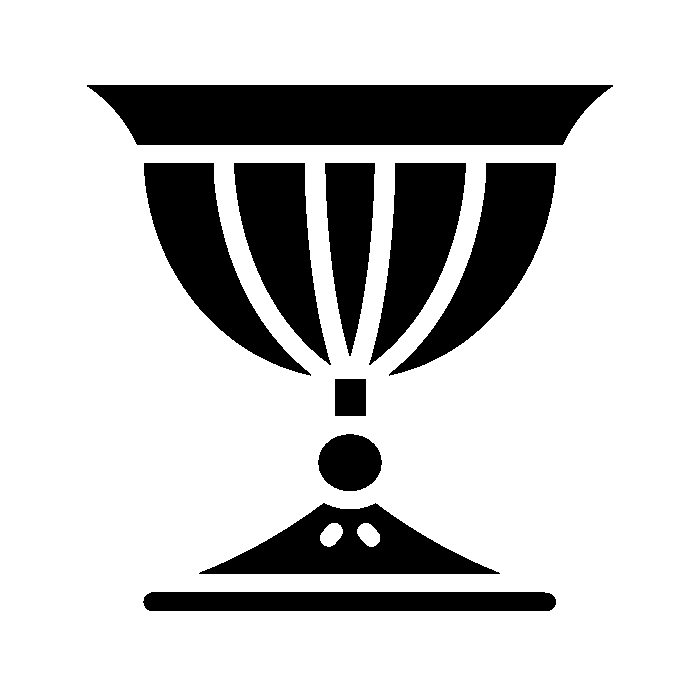Nah.
Telescreens were mandatory.
In the real world, people would voluntarily install them, and pay for the privilage of doing so.
Yeah, more like this guy was right.

Every day Huxley is proven more correct than Orwell because through the magic of SOMA (addictive phones hitting dopamine rushes), people can be surrounded with the truth and completely ignore it, and as you said, pay for the privilege of being lied to because it feels nice. (And oh man, that’s a major industry on OnlyFans, being lied to because it feels nice)
Huxley understood our desires could break us more than our hate.
I can’t find it, but I recall an interview with Zizek around when Snowden dropped his leaks, and it was about how it really changed nothing, and he was noting how the revelations of torture during the Iraq War had changed nothing either. He thought disclosure was a moot point now, society was checked out. He was right.
The “Amusing Ourselves to Death” comic does a good job showing how Huxley did a better job predicting the future.

It seems to me that they were both right. If I didn’t know better, I’d be inclined to think that the wealthy and powerful used their works as a roadmap instead of a warning.

The fascist jocks think Orwellian tactics will work because they get to run around hurting people in the process. The fascist nerds think the Huxley addiction to distraction will work because they get to sell billions of dollars of ads in the process.
They’re both fascists though, and something is going to have to happen to change that.
They were both right. The very first point aged incredibly poorly, considering how many books are banned nowadays.
They were both right - it’s just that Orwell’s prophecies manifested in east while Huxley’s did in the west.
In 2019, Giorgio Agamben gave a week of lectures in Berlin. In the middle of it, he suddenly paused and said: “I hope that everyone in this room realizes that all political action has become impossible.” He meant that political action is no longer possible because we are governed by economic powers.
They were both right. I wouldn’t say either was more right actually. If you merge both of their worlds, you get pretty close to what we’re living in.
Brave New Wolrd and Farnheit 451 with Handmaid’s Tale…I mean, even Zuckeberg with Meta is trying to be the villain ceo of Ready Play One.
Edit: https://lemm.ee/post/53222800 These post is relevant to this discussion.
Specially the comment from [email protected]Good callout to Fahrenheit 451. I think Beatty’s monologues are pretty important because they’re strongly argued. His positions aren’t wholly irrational, he has given it careful, deliberate thought for a long time. The first time I read it I recall feeling compelled and almost convinced by his arguments, which is such a beautiful way to express it. Bradbury literally argues against the existence of the book Fahrenheit 451 itself, his own competing ideas that someone else would want to erase, through Beatty’s monologues. He made a compelling argument for it, too. All the books disagree, so what even is truth?
Knowing how to be psychologically resilient against such arguments is important, I think.
Now that we’re adding more dystopian books to the thread I’d like to shout out to Kallocain (1940) by Karin Boye. It’s more of a totalitarian state similar to 1984 but has an aspect of truth drugs, a hot topic back then, and thought criminalization.
Kallocain
However, unlike Brave New World in which a drug is used to suppress the urge to nonconformity generally, a drug in Kallocain is used to detect individual acts and thoughts of rebellion.
Interesting, shades of Severance. The severing of parts of their life achieves a similar result of preventing (instead of detecting) individual acts and thoughts of rebellion.
…and they line up around the block to get the new ones that can see and hear them even better. Our timeline’s version has access to our fingerprints, can identify our faces from millions of others, know our hobbies, our work schedule, our political leanings, etc, etc. We’re deep in this nightmare.
I think Orwells Animal Farm describes the current situation in the US better. There might be less communism but some things (like the TikTok ban) seem to be stolen directly from the book.
TikTok. Yet people are begging for someone to spy on them if it means feeding their addiction to short form content.
And Meta, X, Alphabet, etc…
Yelling at a homeless person for owning a telescreen.
Mostly the part where words don’t mean anything and reality is crafted by the oppressor.
Reality has always been crafted by the oppressor. It’s an inherently oppressive concept. http://soulism.net/
No man, not all at.
Not only that, but Orwell has become a dog whistle of the right complaining about social justice issues of the left.
Orwell predicted big brother that was an allegory for communism. Where they threw you in jail for wrong think. Hence why the far right love talking about him.
Imo what we are seeing is far closer to the slow collapse of an empire. The overall process is decay, where it’s like a free for all and crabs in a bucket mentality.
Bottom line is, things are falling apart due to incompetence, not a very competent entity taking full control.
Orwell was a leftist who wrote from a leftist perspective. 1984 is about Stalinism specifically and totalitarianism generally. It is not about communism, unless your definition of “communism” only includes the Soviet variety.
Here’s where you point out credible alternatives at national scale, where the powerful machinery of state which even Lenin requires doesn’t get taken over by dictatorial narcissist psychos
Isn’t it possible that all of the options we’ve thought of are incompatible with the basic nature of a few sociopaths seizing everything and grinding decent folk under their boot?
There are some exceptions of egalitarian societies here and there over the past 6000 years but more or less yes.
That’s exactly my belief. Stationary bandit theory is very strong. So the best you can do is a democracy where at least you can kick out bad guys every so often.
Edit: deleted because I was putting words in someone’s mouth, they can speak for themselves
I’m not saying Orwell is only about communism, I’m actually agreeing that Orwell’s book was something rather specific that doesn’t apply 100% to today.
Today’s situation is shaping to be more like the Wild West where anything goes as long as your rich enough instead of a single omnipresent entity having full control.
Except that the oligarchs are now using the legal system to create an oppressive regime for the working class. In the meantime they’ll get to stabbing at each other. In the end, monarchy will remain.
Monarchism is the only end for capitalism (according to Marx’ Das Kapital …and the steady march of history has been consistent so far with this). So for those who disparage capitalism, they’re choosing the despotic totalitarian situation that Washington fought against during the origin of the US.
Oh I 100% agree that feudalism is the end goal of capitalism, I actually think the US is getting too unstable for that. Imo civil war is closer than full on dictatorship, or at least I hope so.
Fair enough, I agree with you. Orwell lacked imagination and was waaay too focused on Stalinism to see what horror was already shaping in the West.
Orwell was a leftist
He was a liberal who operated as an agent of an oppressive fascist government and developed pangs of remorse, which he then translated into his writings.
Also, not to be totally essentialist, but…

Come on. The dude even looks like Hitler.
“We’ve never seen REAL Communism!!”
That line is older and more tired than my 92 year old uncle.
That’s not what I said, nor is it something I ever would say. We have, in fact, seen “real communism,” and we see it still today. The largest-scale example in history is the Ukrainian Free Territory, which functioned through a decentralized system of direct democracy at the community level. It lasted about four years during the Russian Civil War and was ultimately destroyed by Soviet invasion. For centuries, examples of communities functioning through mutual aid and other left anarchist principles have existed and continue to exist. I have personally visited several such communities and cooperatives, briefly living with one of them. Just because there is no “communist country” (which is an oxymoronic phrase) does not mean “real communism” has never existed.
Ok, I misspoke.
Sure, Communism can work at small scales where there is a culturally homogeneous population. Which is why cities and municipalities have the freedom to adopt communist ideals.
The USA in total is far too large and diverse to make it work country wide. We are, by design, neither culturally, politically, or geographically homogeneous.
It would take an all powerful small ruling class forcing compliance in order to make it work on such a large scale. Now we are back to Totalitarianism operating under the guise of “the good of the people!!”
Even at the small scale, we have examples of this not working. CHAZ/CHOP were taken over by opportunists that wanted to benefit themselves at the expense of all others in the community. There is simply too much diversity of thought in the USA to make it work.
Which is why cities and municipalities have the freedom to adopt communist ideals.
They do? Since when?
The USA in total is far too large and diverse to make it work country wide.
Where is your proof of this?
neither culturally, politically, or geographically homogeneous.
You sound no different than the right-wingers pretending that “cultural (ie, racial, since right-wingers don’t actually have the foggiest clue what culture is) homogeneity” is what makes countries successful.
It would take an all powerful small ruling class forcing compliance in order to make it work on such a large scale.
Lol! Says who? You?
So your argument is “NO YOU!!”?
Many small collectives in the US adopt communist values, like Menenites, Mormons or Amish.
My proof is that, despite the overall majority of social media users stating that communism is the way, it hasn’t been adopted country wide because the actual majority of people don’t want it, aka a difference in ideology, aka non homogeneous population.
So saying that every single person in the USA that doesn’t subscribe to the same ideology based on their own personal experiences and surroundings isn’t just a personal political identity, it’s racism?
Says historical accounts of communism being “gently forced” onto a non homogeneous population.
I see that you are just one of those people that thinks everything is tied to race. Saying a population is non homogeneous is not racist. You are putting that spin on it based on your own preconceived ideas.
it hasn’t been adopted country wide because the actual majority of people don’t want it
Your argument is as flat as month-old Coke. The vast majority of people EVERYWHERE did not want liberalism (or the capitalist pillaging and looting it apologized for) - it had to be forced onto people through brutal colonialist violence - yet here we are, aren’t we?
I see that you are just one of those people that thinks everything is tied to race.
I’m not the one that “tied” everything to race, Clyde - ask your “western” ancestors why THEY fetishistically “tied” everything to race to such a degree that their oh-so-precious “western” civilization is incapable of existing without it.
Saying a population is non homogeneous is not racist.
Clyde, defining “sameness” purely by RACE is white supremacist.
It’s also true though. We’ve seen people try. We’ve seen how authoritarians coop it and do horrible shit. But we’ve never actually seen communism.
It’s also true though
We’ve had plenty of instances of “Real Communism” being tried at various stages of social and industrial development. And we’ve had a wide range of results, from the abysmal failures in Romania and Israel to the marginal victories in South Africa and Vietnam to the genuine economic miracles in China and Yugoslavia.
What we haven’t seen is an ideal Star Trek style global utopia. As a result, countries with large capitalist run media tend to suffocate any kind of domestic progressive dialogue with “Um, aktuly…” critiques while their own leadership does Nazi salutes at Presidential inaugurations and profit off the munitions used to flatten whole townships in Gaza neighborhoods.
At some level, you can’t take this critique seriously because its purely reactionary. The folks who insist efforts at socialist reform should never have been tried are the same ones that want us to get back to a Bourbon Dynasty ruling the world.
The truth often gets repeated.
What is the point of this comment?
The world is worse off for having spent time reading this
It’s the click-whir response of someone who has been programmed to hear and respond to an argument that only reactionaries are making.
Animal Farm is the allegoric tale about communism in Russia.
1984 is more general about totalitarianism, still based on stuff that went on in Nazi Germany + Soviet union + wartime England, but it wasn’t a full allegory of things that had already happened. It was more like a science-fiction prediction of the bad things that could happen in any nation if democracy and human rights were not protected.
Bottom line is, things are falling apart due to incompetence, not a very competent entity taking full control.
That’s the only thing that gives me hope about us coming out the other side of this as recognizably the same nation that went into it.
I get your other points, but (as I addressed elsewhere in the discussion) I find it “close enough” for my purposes.
I mean, yeah, most cautionary tales have common themes.
In most terrible situations, you’ll often find tyranny in some shape or form.
Imo what we are seeing is far closer to the slow collapse of an empire.
Which, in fairness, 1984 effectively documents.
But Orwell clings to the idea that this collapse (a collapse that his own country of England was already sliding down) was something that could carry on forever. You could keep cutting those chocolate rations year after year and keep throwing away your youngest generation in war after war and keep churning out revisionist history after revisionist history and nothing would ever really change.
Orwell could predict the fall in the States (because, again, England in the 1950s was in the thick of exactly this revanchist totalitarian Red Scare crisis) but he couldn’t see where it all would end.
Bottom line is, things are falling apart due to incompetence, not a very competent entity taking full control.
One could argue that the consolidation of power into an increasingly remote and schloratic aristocracy will inevitably produce incompetent leadership. As voting districts get larger and elected leaders become more insulated from their constituents, they stop responding to the material conditions in their domains.
And as residents grow more hostile to the fumbling, self-important bigots managing the territory, you see vigilante acts that cause the leadership to retreat further and imposing increasingly stringent loyalty tests on their deputies and bureaucrats.
The focus of effort becomes suppressing dissent rather than fixing underlying economic conditions. So more and more resources go into policing, spying, fencing, and propagandizing.
This isn’t a single individual’s failure (even of you could find a host of singularly foolish, craven, or incompetent individuals) but a function of an aristocracy consumed by paranoia in a society with a shrinking supply of economic goods to spread around.
I don’t feel like Orwell or Huxley are even close.
Orwell was about the party, we have a problem with Capitalist nihilists who aren’t party specific. They’d be doing the same thing if Trump were a corrupt Dem (and he was for a while).
…as for Huxley, we live in a sexually repressed society nothing like Brave New World. The outlets aren’t done collectively in church like structures, and there’s no wild-man sanctuaries to escape to.
So no, neither of them present the model for the current circumstances.
Honestly feels like we got the worst of both options. The petty censorship, puritanism and lies of 1984 mixed with the lesser and trivial entertainments of Brave New World.
I feel like especially in the last few years at least the part of the left that was so concerned with certain issues with problematic media and addressing issues with overly sexualizing women has joined in some unholy union with the prudish and moralists on the right to spawn a general censorship of a vast swath of concepts backed up by both the lefts moral high ground and the rights religious teachings.
Where before there was the nuance to recognize that women were too often presented as sexual objects in popular media, as well as the fact that we shouldn’t kink shame consenting adults or the sex workers providing what should be seen as legitimate service. Now that nuance is lost in favor of simple discrimination and censorship, only disguised in the original movements language.
I don’t think either were a perfect fit, but personally I don’t think they need to be. V for Vendetta lines up great in some ways, much less so in others, but I think it scratches the same itch. They are all cautionary tales about the ways we allow or encourage or accept government use of power, and how those pressure points can be exploited to create various authoritarian and/or dystopian outcomes.
Been awhile since I’ve read any of those, but I definitely have always felt they resonate with each other, and IMO they resonate with current events also.

“What am I, chopped liver?”
😆
I think Brave New World is a better depiction of where we are at.
Orwell - "the party told you to reject the evidence of your eyes and ears. It was their final, most essential command”
Huxley - “the perfect dictatorship would have the appearance of a democracy, but would be basically a prison without walls, in which the prisoners would not even dream of escaping. It would essential be a system of slavery where, through consumption of entertainment, the slaves will live their servitude”
I would agree
Exactly like the PRC and Russia. WTF AmeriKa.
1984 is obviously influenced by brave new world
We read both of those during the same year of school and then compared and discussed. To be honest, there’s elements of both that describe our times.
Orwell lived through the fucking holocaust and couldn’t call a future of eugenics. Embarrassing.
Chat, is this real?
I think that’s Michael Palin.











